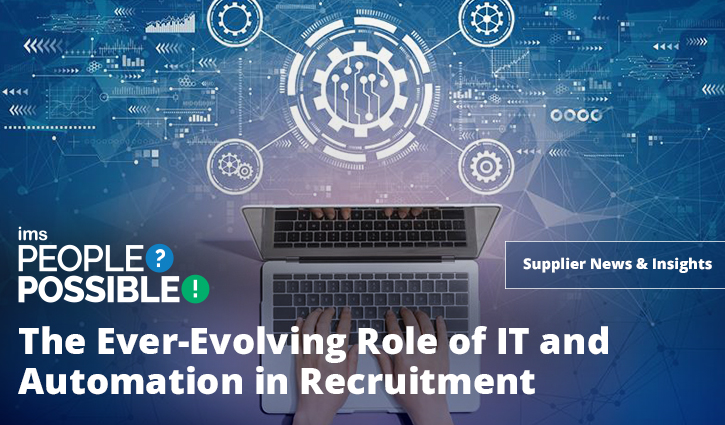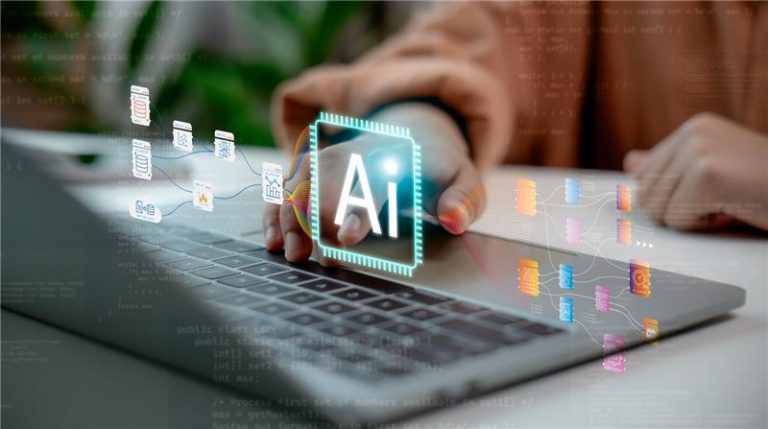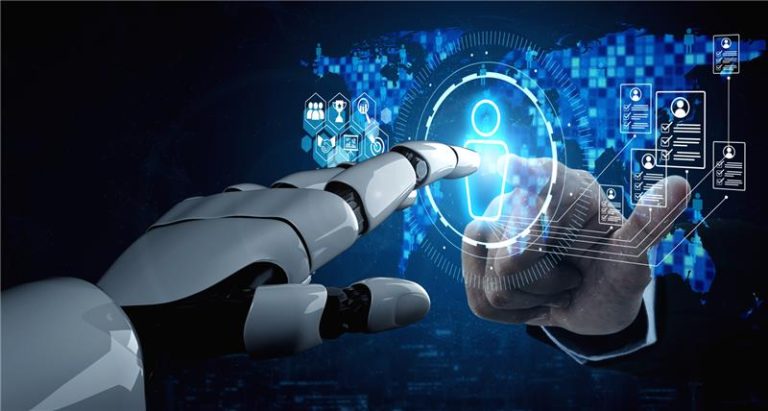The recruitment industry is undergoing a considerable transformation in today’s tech-driven world. Staffing companies can function more efficiently by streamlining recruitment with technology, improving candidate experiences, and securing top talent. It is advantageous and imperative for staffing companies, catering to the young and dynamic (35–58) age range, to keep up with current technological developments.
Digital Recruitment Tools for Hiring
Staffing companies can now manage their processes more efficiently than ever because of the increasing availability of digital recruitment alternatives. Among these are the following instruments:
Applicant Tracking Systems (ATS): These systems manage communication, arrange and track candidate data, and schedule interviews to accelerate hiring.
Recruitment marketing platforms: These platforms assist businesses in attracting prospects through employer branding initiatives, social media interaction, and focused marketing campaigns.
Video Interviewing Software: Video interviewing technologies save time and money by facilitating remote interviews and increasing the number of candidates.
The Benefits of Technology in Hiring
There are many benefits of using technology in hiring, such as:
Enhanced Efficiency: By automating repetitive processes, recruiters can concentrate on more strategic endeavors, freeing time.
Better Candidate Experience: Digital tools allow candidates to benefit from a more responsive and efficient hiring process, improving their overall experience.
Data-driven decisions: Recruiters can use technology’s insightful statistics to enhance hiring strategies and make better decisions.
Simplifying Hiring Processes with Technology
Staffing companies can significantly benefit by streamlining recruitment with technology. Below mentioned are few of the ways among many,
Adopt Complete ATS Solutions: A robust applicant tracking system (ATS) may centralize and streamline your recruitment efforts, from posting job ads to monitoring candidate progress.
Leverage Recruitment Analytics: Make data-driven adjustments by utilizing analytics tools to analyze key performance indicators (KPIs) like candidate satisfaction, cost per hire, and time to hire.
Improve Collaboration: Use cloud-based solutions to help recruitment teams communicate and coordinate, ensuring a more unified and effective hiring process.
Digital Transformation in HR
HR and hiring procedures are changing because of the digital revolution. Staffing companies may remain competitive and satisfy the changing needs of the labor market by utilizing technology. Among the crucial domains of digital transformation are:
HR Management Systems: Integrated HR platforms offer a comprehensive picture of the workforce by managing payroll, benefits, hiring, and employee performance.
Employee Experience platforms guarantee greater engagement and retention rates by improving the employee experience, from career development to onboarding.
Remote Work Solutions: As remote work has become more common, digital solutions for online project management, communication, and collaboration have become crucial for preserving connectivity and productivity.
Impact of AI and Automation in Recruitment
Leading the way in this HR transformation is artificial intelligence (AI). AI-Powered Recruitment solutions are transforming the applicant discovery, engagement, and hiring processes used by staffing companies. There are numerous advantages to these solutions such as:
Sourcing individuals: AI can search the Internet for suitable individuals, analyzing their professional backgrounds and online personas to find those who meet the required standards.
Interviewing: AI-powered interviewing tools can evaluate candidates’ answers and conduct them in real-time, offering objective assessments and highlighting their strengths and weaknesses.
Onboarding: AI technologies may accelerate onboarding by assisting recently hired employees with the required documentation, orientation sessions, and training modules.
Enhanced Candidate Screening: Using preset criteria, AI systems can accurately sift through many resumes to match the candidate profiles with job descriptions, making the right fits and reducing hiring time. AI may evaluate candidates’ preferences, experiences, and skill sets to suggest the best positions, improving their job search process. Using AI, staffing and recruitment agencies can go through large volume of resumes yet maintain efficiency.
Better Candidate Experience: Throughout the hiring process, candidates can receive timely updates on their hiring status and receive quicker responses from AI-powered recruitment tools. Going a step further, AI can help automate the scheduling of interviews, taking into account the availability of both candidates and interviewers to optimize the process.
Predictive analytics: Staffing companies can make better decisions and create more successful recruitment strategies using AI to assess historical hiring data and forecast future trends. Moreover, AI can offer insights into talent availability, salary benchmarks, and emerging skills.
Implementing Recruiting Technology into Practice
For staffing companies, incorporating Artificial Intelligence and automation in hiring process has the potential to be revolutionary. Here is how to use this technology efficiently,
Identify Key Automation Areas: Determine which aspects of your hiring procedure stand to gain the most from automation. Screening resumes, setting up interviews, and communicating with candidates are typical areas.
Select the Correct Resources: Many AI-powered recruitment solutions are accessible, and each has advantages, requirements, and objectives.
Develop Your Team: Upskill your hiring team for optimum usage of these additional resources effectively. Offer thorough guidance, training, and assistance to ensure a seamless digital transition.
Monitor and Optimize: Regularly assess the performance of your AI tools and make the required modifications to maximize their efficacy and efficiency.
Recruitment Automation Tools
Automation tools are essential for present-day recruitment procedures. They have many benefits, including:
Efficiency: Automation allows recruiters to concentrate on more strategic operations, reducing their administrative workload.
Consistency: Automated procedures ensure consistency in candidate assessments by eliminating bias and enhancing fairness.
Scalability: As your company expands, scaling your hiring activities will be more straightforward due to recruitment automation technologies’ capacity to manage large application volumes.
LinkedIn’s New Features to streamline HR operations.
The essential hiring tool, LinkedIn, upgrades its features frequently to improve the hiring process. Among the most recent features are:
LinkedIn Recruiter: Using this sophisticated search engine, recruiters can find applicants according to requirements, such as area, experience, and skill set.
LinkedIn Talent Insights: This analytics tool aids recruiters’ decision-making by offering information on talent pools, market trends, and competitors’ recruiting practices.
LinkedIn Learning: With its extensive course collection, LinkedIn Learning assists job seekers in gaining new skills that increase their employability.
In Summary
Staffing companies face opportunities and challenges due to the constantly changing role of IT and Automation in recruitment. Embracing artificial intelligence (AI), digital technologies and new features on social media sites like LinkedIn can help businesses improve candidate experiences, streamline workflows, and attract top personnel more successfully. To succeed in the competitive employment market, staffing agencies must stay ahead of these technological developments.
This article was provided to TechServe by IMS People Possible. You can view the original article here.












